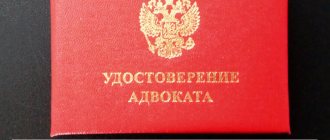PRESIDIUM OF THE VOLGOGRAD REGIONAL COURT
RESOLUTION
dated October 21, 2015 N 44у-99/2015
The Presidium of the Volgograd Regional Court consisting of: presiding officer - Tulenkov D.P.,
members of the presidium - Sarnitsky S.N., Sundukova S.O., Povolotskaya I.N., Sviridova Yu.V., Solovyova N.A., Yutkina S.M.,
with the participation of the Deputy Prosecutor of the Volgograd Region Rusyaev A.M.,
under secretary K.,
examined in open court a criminal case on the cassation submission of the Deputy Prosecutor of the Volgograd Region Rusyaev A.M. on the review of the verdict of the magistrate of judicial district No. 96 of the Volgograd region dated March 11, 2015, by which
P.M., born DD.MM.YYYY in <address>, convicted:
- September 26, 2012 under Part 1 of Art. 157 of the Criminal Code of the Russian Federation to 5 months of correctional labor with deduction of 10% from earnings to the state income, by a resolution of October 2, 2013, the unserved part of the sentence in the form of correctional labor was replaced by imprisonment for a period of 15 days, released on October 17, 2013 upon completion of the sentence;
- October 13, 2014 under Part 1 of Art. 158 of the Criminal Code of the Russian Federation to 6 months in prison, on the basis of Art. 73 of the Criminal Code of the Russian Federation conditionally, with a probationary period of 6 months,
convicted under Art. 322.3 of the Criminal Code of the Russian Federation to 1 year of imprisonment.
In accordance with Part 5 of Art. 69 of the Criminal Code of the Russian Federation for the totality of crimes, the punishment imposed by the acting sentence was partially added to the newly imposed punishment. magistrate judge of judicial district No. 139 of the Volgograd region - magistrate judge of judicial district No. 92 of the Volgograd region on October 13, 2014, the final sentence was 1 year 1 month of imprisonment in a penal colony.
The term of serving the sentence is calculated from March 11, 2015.
The issue was resolved based on the suppression and material evidence.
The head of the FKU pre-trial detention center No. 4 of the Federal Penitentiary Service of Russia for the Volgograd Region was instructed to accept P.M. for further sending her to a penal colony to serve her sentence.
The verdict was not considered on appeal.
In the cassation submission, Deputy Prosecutor of the Volgograd Region Rusyaev A.M. raises the question of changing the sentence due to violation of the requirements of the criminal law.
Having heard the report of the judge of the Volgograd Regional Court Ananskikh E.S., who outlined the content of the court decision, the arguments of the cassation presentation, which served as the basis for transferring the criminal case to the cassation court, the opinion of the Deputy Prosecutor of the Volgograd Region A.M. Rusyaev, who supported the arguments of the cassation presentation, the presidium Volgograd regional court
Punishment for fictitious registration of foreign citizens
Responsibility for this offense is established by Art. 322.3 of the Criminal Code of the Russian Federation.
It is worth noting that within the framework of this issue, the legislation does not establish any special differences between citizens of the Russian Federation and foreigners.
Once a crime is discovered, the fictitious registration is automatically canceled and sanctions are imposed on the culprit, such as:
- a fine of up to 500,000 rubles or in the amount of salary for the last 3 years and deportation from the territory of the Russian Federation with the closure of entry for a certain period;
- forced labor;
- up to 3 years of restriction of freedom with deprivation of the right to engage in certain types of activities.
Both the holder of a fictitious registration and the owner of the residential premises are subject to punishment. Criminal liability is provided for all registration participants.
At the same time, a citizen can avoid a fine if the owner of the so-called “rubber” apartment actively contributed to solving the crime.
In 2021, liability for fictitious registration at the place of residence also extends to legal entities, who in this case will be accused of concealing information about illegal residents. A legal entity may be fined up to 800,000 rubles.
Judicial practice shows that the key difficulty lies in collecting evidence of a person’s guilt. For example, a citizen may be absent from his place of residence for a long time, but sometimes come to the premises at his place of registration. In this case, the registration will be considered legal.
Most often, property owners are arrested for fictitious registration if there is significant evidence of an intentional offense committed by them.
Installed:
by the verdict of magistrate P.M. found guilty of fictitiously registering a foreign citizen at the place of residence in a residential building in the Russian Federation.
The crime was committed DD.MM.YYYY at <address> under the circumstances set out in the verdict.
P.M., who is a citizen of the Russian Federation, registered at the place of residence in the Russian Federation at the address: <address>, with the intent to fictitiously register a foreign citizen at the place of residence in a residential building in the Russian Federation, that is, to register him at registration at the place of stay in a residential premises without the intention of this person to live in this premises and without the intention of the receiving party to provide him with this premises for his stay, realizing the public danger and the illegal nature of his actions, for selfish reasons DD.MM.YYYY in the daytime, while in premises of the Department of the Federal Migration Service of Russia for the Volgograd Region in the Krasnoarmeysky district of Volgograd, located at the address: <address>, being the receiving party, submitted to this department of the Federal Migration Service a notification of the arrival at the place of residence of foreign citizens - citizens of the Republic of Uzbekistan Y.Sh., DD .MM.YYYY year of birth, citizen of the Republic of Uzbekistan A.Z., DD.MM.YYYY year of birth, citizen of the Republic of Uzbekistan Y.I., DD.MM.YYYY year of birth, citizen of the Republic of Uzbekistan Y.Z., DD.MM .YYYY year of birth, citizen of the Republic of Uzbekistan U.B., DD.MM.YYYY year of birth, about their arrival at the place of stay - residential premises located at the address in the Russian Federation: <address>, without intending to provide Y S.Sh., A.Z., Yu.I., Yu.Zh., U.B. this is a residential premises for stay and knowingly knowing that Y.Sh., A.Z., Yu.I., Yu.Zh., U.B. also have no intention of staying in this residential premises. Based on this notification, foreign citizens - citizens of the Republic of Uzbekistan Y.Sh., A.Z., Yu.I., Yu.Zh., U.B. were registered by the department of the Federal Migration Service of Russia for the Volgograd region in the Krasnoarmeysky district of Volgograd at the place of residence in the Russian Federation at the above address. After this P.M. did not provide Y.Sh., A.Z., Yu.I., Yu.Zh., U.B. the specified residential premises for stay, and they did not stay in this premises. Thus, P.M. carried out fictitious registration of foreign citizens at their place of residence in a residential building in the Russian Federation.
In the cassation submission, Deputy Prosecutor of the Volgograd Region Rusyaev A.M. raises the question of changing the sentence due to violation of the requirements of the criminal law. In support of the submission, he points out that when imposing punishment in accordance with Part 5 of Art. 69 of the Criminal Code of the Russian Federation, the magistrate did not take into account that, according to the verdict of October 13, 2014, P.M. punishment was imposed using Art. 73 of the Criminal Code of the Russian Federation is suspended, and according to this sentence - in the form of real imprisonment. Under such circumstances, the magistrate's decision to partially add sentences is erroneous. He asks to change the sentence, excluding the indication of the use of Part 5 of Art. 69 of the Criminal Code of the Russian Federation, the sentence of October 13, 2014 must be executed independently.
The Presidium of the Volgograd Regional Court, having checked the materials of the criminal case and the arguments of the cassation submission, finds them justified and subject to satisfaction.
In accordance with Art. 401.15 of the Code of Criminal Procedure of the Russian Federation, the grounds for canceling or changing a sentence, ruling or court order when considering a criminal case in cassation are significant violations of the criminal and (or) criminal procedure law that influenced the outcome of the case.
Contents of Art. 332.1 TK
At the beginning it is stated that employment contracts with the heads of state and municipal universities are drawn up for a five-year period.
It is emphasized that the positions of top managers of these universities are replaced by persons whose age is no more than 70 years, regardless of the duration of the contracts with them. This rule applies to:
- heads of universities;
- their deputies;
- heads of branches.
These top managers, having reached the mentioned age, are moved with their consent to other positions that meet their skill level.
It is emphasized that the same person cannot fill the position of head of the same state and municipal university for more than three terms. Exceptions are possible if provided for by federal laws or decisions of the President.
It is indicated that in some situations provided for by federal laws or decisions of the President, the length of stay in their positions by top managers of universities mentioned in the second part of the article may increase.
It is emphasized that employment contracts are drawn up with deputy heads of state and municipal universities, as well as heads of their branches, the validity period of which cannot exceed the duration of powers of the heads of the mentioned universities.
The considered article was put into effect by Federal Law No. 157 of May 25, 2020, which was devoted to the nuances of establishing age limits for top managers of state and municipal universities and scientific structures. Previously, the age stipulated for these persons was 65 years.
Separately, it should be noted that open-ended contracts with top managers, who are the subject of this article, must be drawn up on the basis of its contents before 07/31/20, and the charters of previously created universities that it affects - before the beginning of 2022.
Such violations were committed in this case.
As can be seen from the verdict, P.M. the crime was committed DD.MM.YYYY, that is, before the previous verdict of October 13, 2014.
Taking this into account, the final punishment was imposed by the magistrate in accordance with Part 5 of Art. 69 of the Criminal Code of the Russian Federation for the totality of crimes under this verdict and the sentence of October 13, 2014.
At the same time, the magistrate did not take into account that according to the verdict of October 13, 2014, the punishment of P.M. assigned using Art. 73 of the Criminal Code of the Russian Federation, that is, conditionally, and according to this sentence - in the form of real imprisonment.
By imposing the final punishment on P.M. according to Part 5 of Art. 69 of the Criminal Code of the Russian Federation, the magistrate actually canceled the suspended sentence based on the acting sentence. Magistrate Judge of Judicial District No. 139 - Magistrate Judge of Judicial District No. 92 of the Volgograd Region dated October 13, 2014.
At the same time, the magistrate did not take into account that, according to paragraph 47 of the Resolution of the Plenum of the Supreme Court of the Russian Federation of January 11, 2007 No. 2 “On the practice of imposing criminal punishment by the courts of the Russian Federation,” if in relation to a conditionally convicted person it is established that he is also guilty in another crime committed before the verdict in the first case, the rules of Art. 69 of the Criminal Code of the Russian Federation cannot be applied, since Art. 74 of the Criminal Code of the Russian Federation provides an exhaustive list of circumstances on the basis of which a suspended sentence can be revoked.
Consequently, the sentence of the acting Magistrate Judge of Judicial District No. 139 - Magistrate Judge of Judicial District No. 92 of the Volgograd Region dated October 13, 2014, by whom P.M. convicted under Part 1 of Art. 158 of the Criminal Code of the Russian Federation to 6 months of suspended imprisonment, with a probationary period of 6 months, subject to independent execution.
Thus, the magistrate unreasonably applied the provisions of Part 5 of Art. 69 of the Criminal Code of the Russian Federation when appointing P.M. final punishment, which indicates a violation of the General Part of the Criminal Code of the Russian Federation.
Under such circumstances, the presidium comes to the conclusion that the verdict of the magistrate of judicial district No. 96 of the Volgograd region dated March 11, 2015 in relation to P.M. subject to change, the instruction on the imposition of the final punishment according to the rules of Part 5 of Art. 69 of the Criminal Code of the Russian Federation - exception, and the sentence of October 13, 2014 - independent execution.
Based on the aforesaid and guided by Article. 401.14, 401.15 Code of Criminal Procedure of the Russian Federation, Presidium of the Volgograd Regional Court
How to prove that registration is fictitious?
Only a judicial authority has the right to declare registration (temporary or permanent) illegal . An application to the court is usually filed by a local police officer or employees of the Migration Service, who have discovered that more people are registered in the apartment than live.
Sometimes vigilant neighbors of a “rubber” apartment ask to conduct a similar check for fictitiousness.
After reporting to the Migration Service about the suspicion of the presence in the apartment of people fictitiously registered in it, an inspection will be initiated, during which documents are examined, including documents from the place of work, and neighbors are interviewed.
As a result, the case will be considered in court, and the perpetrators will be punished.
So, it is not easy to prove the registration is fictitious, but it is possible, so lawyers recommend that both parties do everything according to the law.
You should not apply for a fictitious registration to dubious offices that promise to register you on the same day, for money, of course.
Remember that liability can be not only administrative, but also criminal, including imprisonment.






